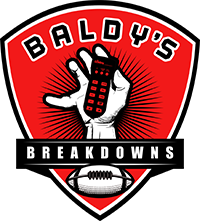
Discover the true essence of NFL greatness as we delve into the intricate world of game strategy. From precision plays to masterful tactics, every move on the field is a strategic dance of power and finesse. Join us on a journey through the minds of the game’s strategists, where victory is crafted with astute precision and daring acumen. Welcome to a realm where gridiron brilliance and game theory intersect, shaping the very soul of football’s elite warriors.
Unveiling the Winning Game Strategy: A Breakdown of Tactical Brilliance
In the National Football League, the distinction between victory and defeat often lies in the meticulous execution of game strategy. Teams aren’t merely equipped with athletic prowess; they harness a symphony of well-crafted playbooks, anticipated adversarial moves, and real-time adaptations. The strategic battlefield of the NFL is an arena where thought dissects muscle and calculation measures brute strength. Exploring these strategies provides fans and aficionados with deeper insight into the complex chess match that unfolds on the gridiron every Sunday.
The Foundation of Game Strategy
All thriving game strategies are anchored in intensive preparation and exhaustive film study. Before the players take to the field, hours upon hours are spent analyzing rival tendencies, dissecting their defensive alignments, and understanding offensive preferences. The coaching staff manufactures a comprehensive blueprint tailored specifically to exploit the opponent’s weaknesses while amplifying their own team’s strengths. This preparation is the bedrock on which game day agility is built.
Offensive Execution
The offensive strategy in the NFL is often a dazzling display of ingenuity, blending power and finesse to outmaneuver the defense. Coaches like Sean McVay and Andy Reid excel in constructing offensive schemes that innovate ways to create mismatches. Formations, motion shifts, and audibles aren’t merely superficial tactics—they’re designed to diagnose defensive coverages and create opportunities for big plays. Modern NFL offenses utilize spread systems, West Coast frameworks, and Read-Option strategies, each offering its own tactical advantages.
The Importance of Tempo
A prevailing trend in the league is the use of tempo to dictate the flow of the game. Teams skilled in no-huddle or hurry-up offenses, like the Kansas City Chiefs, can keep the defense on its heels, minimizing their ability to substitute effectively and adjust coverage schemes. Tempo can break a defense’s rhythm and force them into simplified plays, magnifying the offense’s chances for success.
Defensive Schemes
Game strategy isn’t restricted to offensive creativity; defensive schemes are equally layered and sophisticated. Legendary coaches like Bill Belichick have built their careers on adapting defensive game plans to neutralize dominant offensive threats. Strategies such as zone blitzes, man-to-man coverage shadows, and hybrid nickel defenses are specialized approaches that complicated even the finest offensive minds.
The Backbone of Blitz Packages
An aggressive ingredient in any defensive scheme is the blitz package. Effective blitzing requires perfect harmony between the front seven and secondary players. A team’s ability to execute complex blitzes, like the “A-Gap” blitz or corner blitz, can disrupt timing, force turnovers, and fundamentally alter the momentum of the game. Defensive coordinators utilize these tactics carefully, balancing aggression with calculated risk.
Real-Time Adjustments
Perhaps the most captivating aspect of NFL game strategy is the ability to make real-time adjustments. The hallmark of resilient teams and accomplished coaches lies in their ability to dynamically alter strategic approaches based upon how the game unfolds. Whether it’s halftime adjustments or series-to-series recalculations, teams like the New England Patriots thrive on this tactical fluidity. Their ability to adapt can mean the difference between a narrow loss and a triumphant victory.
Special Teams: The Unseen Maverick
In analyzing NFL game strategy, special teams often remain an overlooked facet. However, their impact can tilt the game scales dramatically. The role of special teams goes beyond just kickoff and punt returns—it’s about field position management, game tempo control, and providing the pivotal edge in close contests. Return specialists and gunners contribute significantly to a comprehensive game strategy, influencing overall team success through their explosive plays and key stops.
The Psychological Edge
While physical readiness and game plans are essential, the psychological component of game strategy holds an irrevocable influence. History has observed psychological warfare carried out on the field: remember Vince Lombardi’s Green Bay Packers or Mike Ditka’s Chicago Bears, who imposed their will with unshakable confidence and mental fortitude. Managers impart a mental tenacity and psychological robustness in their teams that often translate into pure, strategic dominance on game day.
Conclusion
In attempting to decipher the architectural brilliance behind winning NFL strategies, we unravel the magic behind seemingly spontaneous sports heroics. Game strategy in football is a realm wherein precision, imagination, mastery over minutiae, and psychological tenacity converge harmoniously. Understanding the depth of this strategic bedside dance elevates the appreciation of every touchdown, interception, and game-winning field goal.
Engage with the strategic symphony that defines the NFL and witness the moments of insight where preparation and execution merge to create lasting memories. Follow along on our insights and in-depth breakdowns on Facebook, X, and our in-depth video analyses on YouTube. Here’s to the pursuit of gridiron greatness and an enlightened understanding of the game we all cherish.
